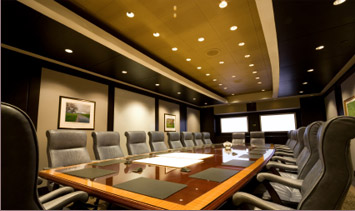Conference Booking and Planning Top Tips
You've got your conference brief at hand, so what's next? The article below highlights a few of our conference booking and planning tips, the first of which is how to find the right hotel (or other conference venue) which will meet your needs.
Venue Tips
Do Your Research
If you don't already know of a good quality conference venue, then it's time to do your research. You can go online and search for hotels or venues which offer the services you require. Whether it's just one or several rooms for presentations, meetings and break out areas where food and drink can be served to the types of technology you'll require (projector, whiteboards, lapel mics, podium, sound system etc.) you need to find out what each venue can offer.
Get Quotes from Multiple Venues
It's worth getting comparable quotes from multiple venues so that you can compare costs and ensure you will be getting good value for money. You can also use other quotes to negotiate with the venue of your choice if you've been offered a similar service elsewhere at a reduced price.
Unless you already know the hotel it's worth paying the venue a visit. If you intend to recommend the hotel to conference attendees who will need overnight accommodation you may also want to stay there so you can experience the service first hand.
Consider Non-Hotel Venues
As well as hotels you should consider other "non-hotel" venues. As food and drink can often be more expensive at hotels looking at other venues that offer conference space and allow you to bring in outside caterers is an option to be considered. Although obviously this has to be weighed up against the extra time in then finding a good, reliable caterer against the savings you would make moving away from a hotel.
Don't Allow Yourself To Be Pressured Into Making A Rush Decision
It's important to make the right choice for your conference. Don't be pressurised into making a rush decision because a venue tells you that, for example they have another party interested in the date/room(s) you are looking to book or that the "special offer" they are running will expire in the next day or so.
It may be the case that all of these conditions are true, but this should not affect your decision making process in ensuring the venue is right for you - rushing into a booking that you've not properly researched is only likely to lead to issues and cost you time and energy further down the line.
If a conference venue wants your business they'll work with you rather than try to pressurise you into making a decision. If they don't then they probably aren't a good fit anyway and you should focus on other alternatives.
Guest Speakers Tips
Finding The Right Guest Speaker
In a previous article we talked about how to find guest speakers for your event using online tools. This is an excellent way of finding "industry experts" who will be a good match for your event theme.
Taking some time to go through what type of presentation you want and the type of speaker you are looking for will also help narrow down your search.
Planning/Scheduling Presentation Timelines
Making sure your event runs smoothly requires good time management and ensuring guest talks keep to timings and schedules.
Let guest speakers know how much time they will be given to deliver their presentation and build in time for questions so that talks don't overrun. This will go a long way to keeping your event on track and your attendees happy.
Marketing Tips
Use Your Contacts
If you're short on marketing ideas look to places like LinkedIn to get advice or just to bounce ideas off other people in the industry. There are lots of good marketing articles shared across social media platforms that may inspire you.
Using Your Website As A Marketing Tool
Your company website should be the cornerstone of your event promotion and marketing efforts. It's extremely important to ensure event information is up to date throughout the lead up to the event. From the event date, location and description, speaker bios, images and where possible videos from previous events, the information should be compelling and inviting. You should also consider utilising your site to push information out to social media platforms as your event page (and blog/news page) is updated. This will complete the loop between your site and social media, allowing updates to draw your social media visitors back to your site.
The attendee booking process needs to be as simple as possible to avoid any technical issues or frustrations. This is usually one of the biggest stumbling blocks in getting people registered for an event.
Social Media
In today's technology driven age social media plays a very important role in marketing. Used correctly it can help to get your message out there and help make your conference a success.
You can also use social media to your advantage during your event by, for example, posting updates, highlighting key talking points and posting images. Doing this can "build your brand" and market your conference, making it easier to attract speakers and attendees the next time you run an event. It's also worth thinking about what attendees will talk about or post on social media during and after the event. Make it easy for them by providing "conference highlights" which may help create "talking points".
Other Marketing Tools
Of course, just because social media is so prevalent shouldn't stop you from using email, press releases, industry articles and leaflets to get your message out there too!
For information on conference room booking contact Booking Partners on +44 (0)330 022 8643 or via e-mail at reservations@bookingpartners.co.uk.





